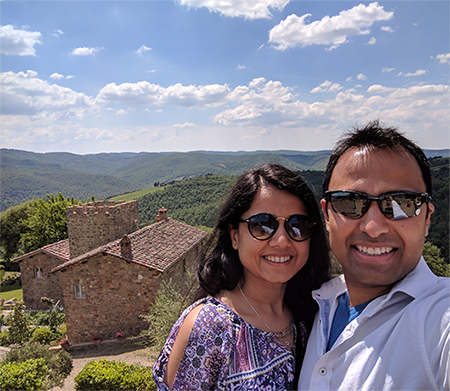Residency will be the most rewarding experience in your long medical career; however, it will not be without significant challenges.
You will be expected to push yourself, care for complicated patients, work long hours, read volumes of texts and master new skills. Throughout these critical years, it’s also important to remember to take care of yourself physically, emotionally and mentally — even if actual institutional policies may contradict this very notion of physician well-being.
Here are some practical tips for maintaining your physical, emotional and mental health.
Your Physical Health
Sleep when you can. Countless studies have demonstrated the harmful effects of sleep deprivation on pretty much everything required to succeed in residency — your mood, cognitive performance and motor skills. For example, moderate sleep loss is comparable to the psychomotor performance during moderate alcohol intoxication, while chronic partial sleep deprivation has similar harmful effects. Sleep when you can, even if it’s just a power nap, and enjoy that martini effect when you are off duty!
Exercise regularly and eat healthy. In the precious little time you are free from clinical work, take some time to exercise. The benefits of a healthy diet with routine physical activity are wide-ranging, from the prevention and treatment of medical conditions to psychological well-being. Practice what you have preached to all your patients since medical school. Go for a run, do yoga, hit the gym, swim, take a fitness class, or do anything that elevates your heart rate for 30 minutes or more. While you are at it, convince your co-residents to join you! Not only will you motivate each other to improve physical health, but it’s also a good time to vent.
 |
|
Dr. Mehta on a trip to Tuscany during ophthalmology residency. Phones off and no emails for a week!
|
Your Emotional Health
Reach out to family, friends and colleagues. Ophthalmology residency is emotionally draining. From day 1, you are expected to perform complete ophthalmic exams and diagnose and treat patients. You have to combine these expectations with the demands of your attendings to run efficient, high-quality clinics, all while trying to find some time to read and improve your knowledge base. Stay in touch with your family and friends so that you can talk about your stressful days, difficult patients and challenging complications or simply listen to them. or simply listen to them. Sometimes hearing about what else is going on in the world can serve as a respite from your own day-to-day struggles. And don’t forget to get together with your co-residents and do something fun. Go out, explore and make memories!
Use your vacations. You may be tempted to show your grit by skipping vacations, but you’re not impressing anyone. Take these brief escapes to step away from work, reconnect with loved ones, reenergize, recuperate and return to residency with a renewed sense of motivation. You’ll be stronger, smarter and better because of it.
Your Mental Health
Take advantage of professional mental help. You have a long, prosperous medical career ahead of you. The goal of residency is to develop not only a strong medical foundation, but also resiliency and the necessary habits to avoid burnout later in your career. Learn coping strategies from your co-residents and attendings. If you need more, seek professional help. Your residency program will provide you with resources, but feel free to go outside the system to find your own therapist, psychologist or psychiatrist to ensure confidentiality.
Many insurance policies also provide mental health coverage, so use it. Other resources are provided by the AMA, AAMC and ACGME (like their AWARE Program). Although there is often a stigma associated with mental health issues, being proactive now can improve your well-being in the long term.
Our humanity is what makes us great physicians and helps us connect with patients and deliver exceptional care. Nurture that humanity and take time for yourself so you can be as healthy and happy as you wish your patients to be.
The Academy’s Wellness Initiative
The Academy has a series of resources, tools and strategies designed to help you cope with stress, protect and restore your own well-being and preserve the joy of protecting sight. Check out aao.org/wellness for:
- Stories from your peers about the importance of physician wellness
- Self-assessment tools and wellness toolkits
- Strategies for practicing mindfulness and avoiding burnout
- Tips for detoxing from your digital devices
- Walkthroughs for yoga, stretching and better ergonomics
- Apps to help you recharge
|
* * *
 Viraj J. Mehta, MD, MBA,
Viraj J. Mehta, MD, MBA, is an oculoplastics surgeon in Washington, D.C., and joined the
YO Info editorial board in 2020.